第59章
It had been usual with philosophers to divide all the passions of the mind into two classes, the selfish and benevolent, which were supposed to stand in constant opposition and contrariety; nor was it thought that the latter could ever attain their proper object but at the expense of the former. Among the selfish passions were ranked avarice, ambition, revenge; among the benevolent, natural affection, friendship, public spirit. Philosophers may now perceive the impropriety of this division. [See Butler's .] It has been proved, beyond all controversy, that even the passions commonly esteemed selfish carry the mind beyond self directly to the object;that though the satisfaction of these passions gives us enjoyment, yet the prospect of this enjoyment is not the cause of the passion, but, on the contrary, the passion is antecedent to the enjoyment, and without the former the latter could never possibly exist; that the case is precisely the same with passions denominated benevolent, and consequently that a man is no more interested when he seeks his own glory than when the happiness of his friend is the object of his wishes; nor is he any more disinterested when he sacrifices his ease and quiet to public good than when he labors for the gratification of avarice or ambition. Here, therefore, is a considerable adjustment in the boundaries of the passions, which had been confounded by the negligence or inaccuracy of former philosophers. These two instances may suffice to show us the nature and importance of that species of philosophy. [This note was removed by Hume from later editions of the . - - J.F.]
[4]I/T is probable that no more was meant by these, who denied innate ideas, than that all ideas were copies of our impressions; though it must be confessed, that the terms, which they employed, were not chosen with such caution, nor so exactly defined, as to prevent all mistakes about their doctrine. For what is meant by ? If innate be equivalent to natural, then all the perceptions and ideas of the mind must be allowed to be innate or natural, in whatever sense we take the latter word, whether in opposition to what is uncommon, artificial, or miraculous. If by innate be meant, contemporary to our birth, the dispute seems to be frivolous; nor is it worth while to enquire at what time thinking begins, whether before, at, or after our birth. Again, the word , seems to be commonly taken in a very loose sense, by L/OCKEand others; as standing for any of our perceptions, our sensations and passions, as well as thoughts. Now in this sense, I should desire to know, what can be meant by asserting, that self-love, or resentment of injuries, or the passion between the sexes is not innate?
But admitting these terms, and , in the sense above explained, and understanding by , what is original or copied from no precedent perception, then may we assert that all our impressions are innate, and our ideas not innate.
To be ingenuous, I must own it to be my opinion, that L/OCKE was betrayed into this question by the schoolmen, who, making use of undefined terms, draw out their disputes to a tedious length, without ever touching the point in question. A like ambiguity and circumlocution seem to run through that philosopher's reasonings on this as well as most other subjects.
[5]Resemblance.
[6]Contiguity.
[7]Cause and Effect.
[8]For instance, Contrast or Contrariety is also a connexion among Ideas: but it may perhaps, be considered as a mixture of and . Where two objects are contrary, the one destroys the other; that is, the cause of its annihilation, and the idea of the annihilation of an object, implies the idea of its former existence.
[9][The remainder of this section was removed from the final two editions of which were authorized by Hume. -- JF]
[10]Contrary to Aristotle [cf. 1450a].
[11]The word, Power, is here used in a loose and popular sense. The more accurate explication of it would give additional evidence to this argument. See Sect. 7.
[12]N/OTHING is more useful than for writers, even, on , , or subjects, to distinguish between reason and experience, and to suppose, that these species of argumentation are entirely different from each other. The former are taken for the mere result of our intellectual faculties, which, by considering
the nature of things, and examining the effects, that must follow from their operation, establish particular principles of science and philosophy. The latter are supposed to be derived entirely from sense and observation, by which we learn what has actually resulted from the operation of particular objects, and are thence able to infer, what will, for the future, result from them. Thus, for instance, the limitations and restraints of civil government, and a legal constitution, may be defended, either from , which reflecting on the great frailty and corruption of human nature, teaches, that no man can safely be trusted with unlimited authority; or from and history, which inform us of the enormous abuses, that ambition, in every age and country, has been found to make so imprudent a confidence.
The same distinction between reason and experience is maintained in all our deliberations concerning the conduct of life; while the experienced statesman, general, physician, or merchant is trusted and followed; and the unpractised novice, with whatever natural talents endowed, neglected and despised. Though it be allowed, that reason may form very plausible conjectures with regard to the consequences of such a particular conduct in such particular circumstances; it is still supposed imperfect, without the assistance of experience, which is alone able to give stability and certainty to the maxims, derived from study and reflection.